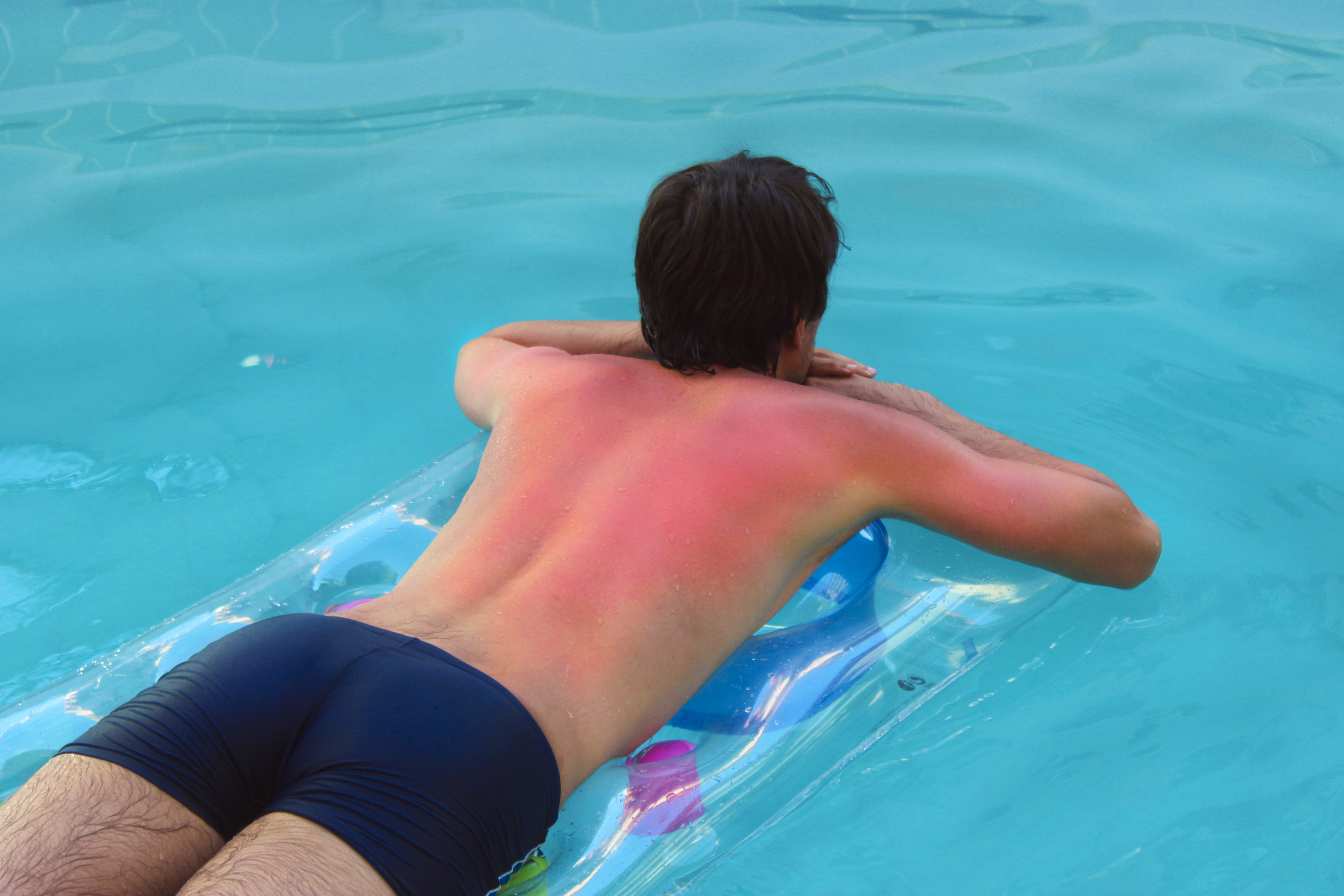Oops, you’ve done it again! Despite your best intentions, an overcast summer day frolicking in the park has left you looking (and feeling) like a human lobster.
While light-skinned, light-eyed people are most susceptible to sunburn, it can impact skin of ALL colors, causing long-lasting damage and increasing your risk for skin cancer. Skin that gets burned a lot will also age more quickly and get more wrinkly.
Try these tips to help prevent sunburn and treat it if it should happen!
First, make sure you’re applying sunscreen properly with these tips:
- Use sunscreen with a sun protection factor (SPF) of 30+ or more; children and adults who are prone to sunburn should use a higher SPF
- Apply a broad-spectrum sunscreen, which protects against different forms of UV rays (UVA, UVB and UVC)
- Ensure the sunscreen is water-resistant
- Apply it to clean, dry skin at least 20 minutes before you go outside, then reapply every 2 hours
- Reapply more often if you are swimming, sweating a lot or drying your skin with a towel
- Check to make sure your sunscreen has not passed its expiration date and has not been stored in direct sunlight or hot temperatures (i.e. a hot car or by the pool)
If you have been sunburned, DO:
- Take short, frequent cool showers or baths to reduce your skin’s temperature
- Apply a light moisturizer before you’re completely dry to help trap the water on your skin
- Use cooling aloe vera gel; if an area feels especially bad, hydrocortisone cream is another option
- Try cool compresses (like a wet towel or washcloth) until your skin feels cooler to the touch
- Take aspirin or ibuprofen to help reduce swelling, redness and pain
- Drink extra water to help prevent dehydration
- Allow any blisters to heal; blistering skin means you have a second-degree sunburn
- Cover sunburnt skin with tightly-woven, loose-fitting clothes until it has fully healed
If you have been sunburned, DON’T:
- Apply ointments with irritating ingredients or petroleum jelly, which traps heat
- Use creams that contain alcohol or “-caine” products (i.e. benzocaine), which can irritate skin
- Put ice or ice packs on sunburnt skin
- Pop blisters, which help your skin heal and protect you from infection
- Scratch or try to remove peeling skin
- Wear tight-fitting clothes over sunburnt skin
When to see a doctor
See your doctor immediately for severe sunburn, or if you have:
- Blisters that break open or are filled with fluid
- Fever
- Headaches
- Nausea or vomiting
- Dizziness
- Severe pain that can’t be controlled with painkillers
- Swelling or if the area looks infected



